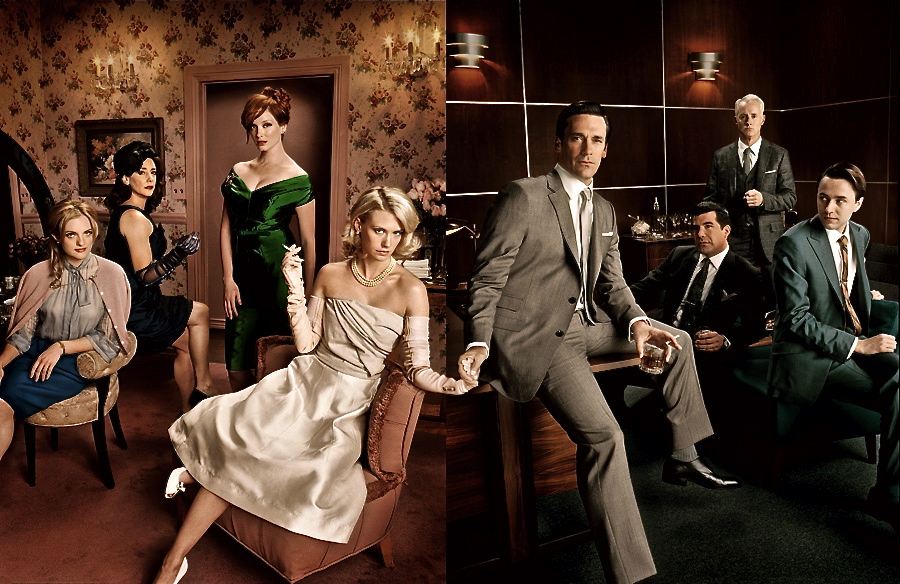Theories and Bragging Rights
Alissa Wilkinson
I've long been a fan of the AMC series Mad Men, which looks at America in the 1960s through the lens of Madison Avenue at the time. The seventh season started in mid-April, and I've been writing recaps of each episode. To prepare, I watched the fifth and sixth seasons again and was struck this time by how carefully written they are. There is far more going on in a season, or even a single episode, of Mad Men than meets the eye: metaphors, allusions, symbols, all the elements of a good literary novel are present in the show. It rewards a re-watching.
I've also been reading a lot about the show, and one thing anyone who's read seriously about Mad Men knows is that fan theories abound. Last season, they were mostly about whether Megan Draper, Don's second wife, was in fact a sort of Sharon Tate character, destined to be offed in a manner like Tate. Speculation arose because Megan wore a shirt that matched one in a photograph of Tate, and so, fans reasoned, perhaps Matt Weiner, the show's head writer and executive producer, was dropping clues about her eventual demise.
Fair enough. But the show has been dropping hints about everyone's demise right from the start, because the show is at least sometimes a show about mortality (though one popular fan theory last season posited that Don Draper himself was already dead, with screenshots and symbols to back it up).
Such theories treat the show as a puzzle to be unlocked, a sort of trail of breadcrumbs that might lead a savvy viewer down the road toward guessing what happens in the finale, set to air in 2015 along with the back half of the seventh season. Now the race is on: who will guess first, or best? Who will get the bragging rights?
A similar phenomenon happened when the HBO show True Detective (which I loved) aired earlier this year. Viewers scoured the show for clues: who was the Yellow King? Why did Rust Cohle wander around quoting esoteric philosophy and poetry? What was actually going to happen? I think of this as the Lost school of television watching: the goal of a close reading is to follow the hints dropped by the show in order to unlock the mystery and win arguments in comments sections on articles.
True Detective disappointed some fans by having a rather straightforward ending that didn't satisfy any theories, though by my lights it was a satisfactory ending. And I'm fairly confident that Mad Men, though it is dropping ostensible clues left and right (some of which I've pointed out in my recaps), won't end the way anyone expects, either. I have more faith in the writers than that.
